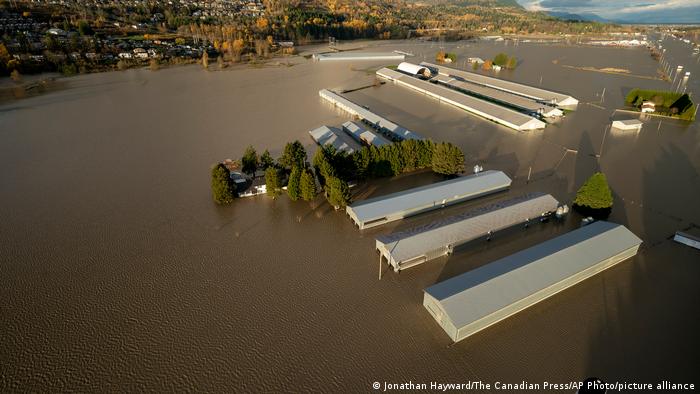
Days of torrential rain have caused severe flooding and landslides across part of Canada and the northwestern United States, with thousands of people being evacuated or rescued from stranded vehicles.
In Canada, a mudslide swept cars off Highway 99 near Pemberton, some 100 miles (160 km) to the northeast of Vancouver, killing at least one person. Rescue teams have been searching through the debris for two other people reported missing, officials said.
On Monday, nearly 300 people were rescued by helicopter from Highway 7 near the town of Agassiz after cars were trapped between two mudslides.
In the US state of Washington, a 59-year-old man has also been reported missing after his truck was caught by flooding. Officials in the small city of Sumas, near the Canadian border, said hundreds of people had been evacuated and that three-quarters of homes there had water damage. The flooding also caused widespread power outages in the western part of the state.
The cities of Abbotsford, Chilliwack and Merritt in the Canadian province of British Columbia have also seen mass evacuations amid the flooding.
Vancouver port cut off
Canadian officials said rail access to Canada's largest port of Vancouver was cut.
"All rail service coming to and from the Port of Vancouver is halted because of flooding in the British Columbia interior," port spokesperson Matti Polychronis said on Tuesday.
The port moves C$550 million ($440 million, €389 million) worth of cargo a day. The two railway companies serving the port, Canadian Pacific Rail and Canadian National Railway, said it might take days to clear track outages.
Floods have also caused pipelines to cease operation, with Enbridge Inc. shutting a segment of a British Columbia natural gas pipeline as a precaution and the Trans Mountain pipeline forced to close.
Torrential rain
The flooding comes after some areas of British Columbia received 8 inches (20 cm) of rain on Sunday, the amount that usually falls in a month.
Bellingham International Airport in Whatcom County in Washington state also experienced a month's worth of rain from Saturday through Monday. The National Weather Service put the amount at 5.57 inches.
The landslides and floods come less than six months after British Columbia was hit by record-breaking temperatures that led to some 500 heat-related deaths and wildfires. Climate scientists say such weather extremes have become more likely as a result of global warming.